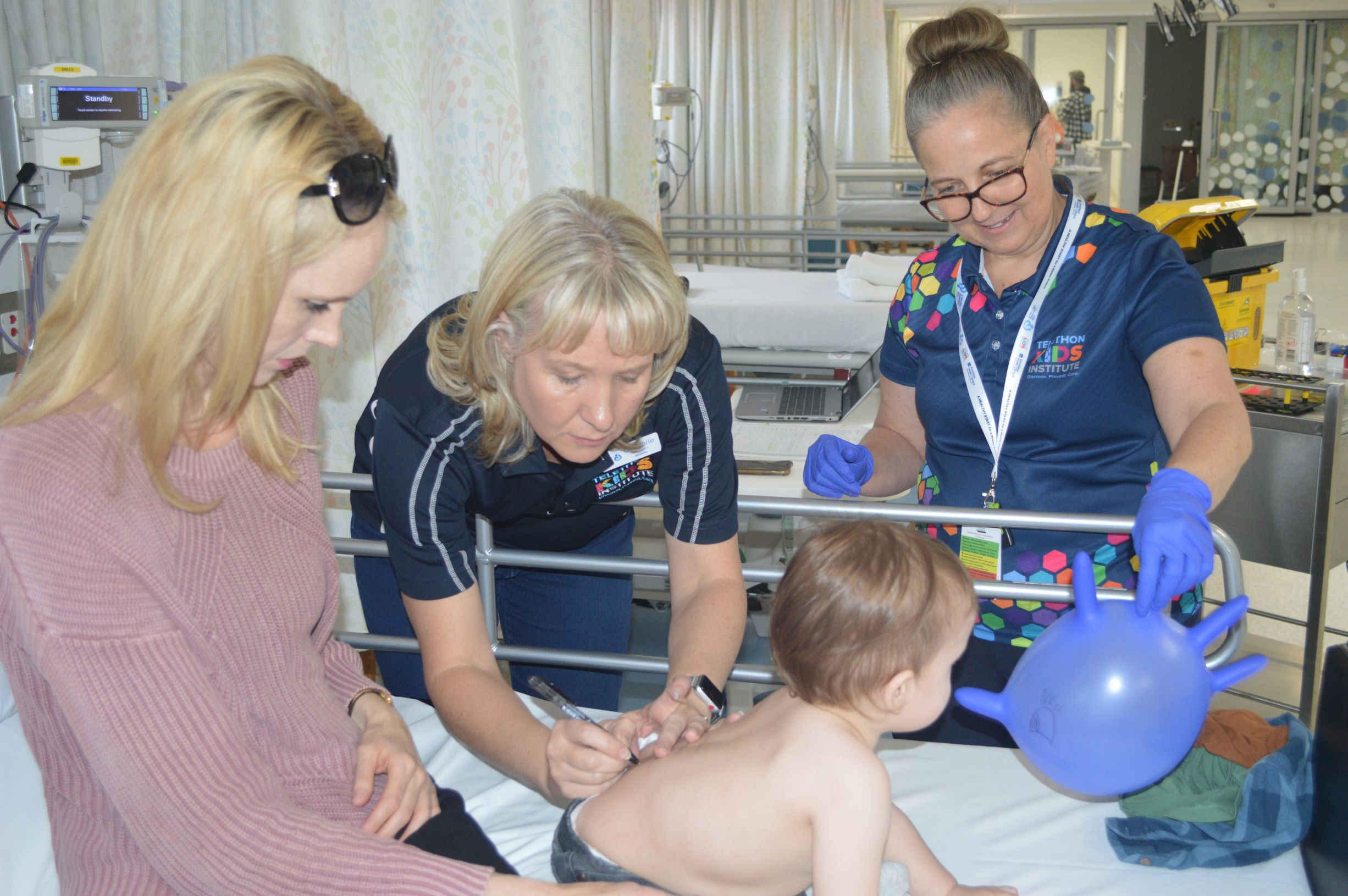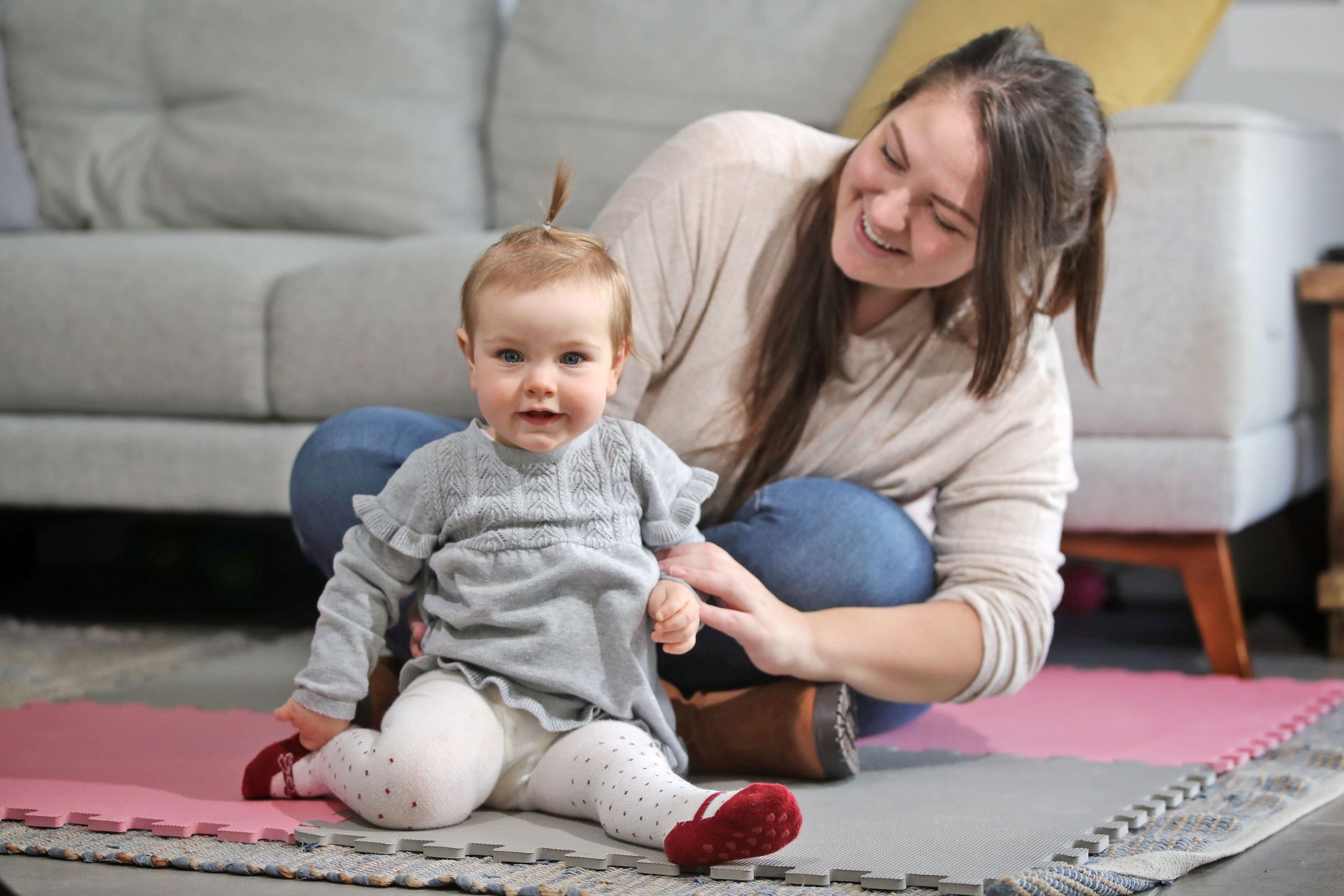
Researchers at The Kids Research Institute Australia are encouraged by a recent report released by the Federal Government’s House of Representatives into allergies and anaphylaxis in Australia.
Allergy and Immunology researchers at the Institute have long recognised the importance of dedicating time and funds into investigating the early environment and its effect on allergy development in young people, and the importance of prevention.
“With increasing prevalence of allergic diseases now affecting one in five young children, we need to further our understanding of how, why and when allergies occur,” The Kids Research Institute Australia Head of Childhood Allergy and Immunology Research, Dr Debbie Palmer said. “We then need to undertake research to find the most effective strategies for allergy prevention.”
The Childhood Allergy and Immunology Research Team at The Kids Research Institute Australia are currently conducting four studies investigating nutritional strategies in the diets of mothers and babies and how these may reduce the development of allergies.
“We are tackling allergy prevention in early life as many children appear to commence on an allergy-prone pathway before they turn one,” Dr Palmer said.
The studies are being conducted as part of ORIGINS, a collaboration between The Kids Research Institute Australia and Joondalup Health Campus, looking at the impact of the early environment on the health outcomes of 10,000 families and babies birthed at Joondalup Health Campus over ten years.
The Childhood Allergy and Immunology Research Team has led previous research studies that have now been incorporated into allergy prevention national recommendations that common allergy foods (like egg) should be given to babies regularly once they start on solid foods to assist with reducing the risk of food allergy development.
“Although this approach will benefit some babies, we have also discovered that for other babies, strategies to prevent allergies need to start even during pregnancy,” Dr Palmer said.
“In the PrEggNut study, we are now investigating with our ORIGINS families whether there is an ideal amount of eggs and peanuts a mother eats during pregnancy and breastfeeding that will further reduce the development of these common food allergies in her baby.”
The report, titled Walking the allergy tightrope, was released by The House of Representatives Health, Aged Care and Sport Committee.
It made 24 recommendations into how to address the rising prevalence of allergies in Australia, with Committee Chair Mr Trent Zimmerman commenting that ‘with no cure yet, further research into allergies and anaphylaxis is critical, and that there is a need to understand what causes allergies which will lead to better management, treatment and ultimately prevention.’
"We understand the committee inquiry found that the ‘cause of the increasing prevalence of allergies is not entirely clear but appears to be a combination of genetic and environmental factors,’ which is exactly what our research is exploring and aiming to address.”
Dr Palmer and her team are also currently looking at whether mother and baby gut health can be improved by pregnant mothers consuming prebiotics - the food for good healthy gut bacteria, in the SYMBA study.
“This is thought to then have a flow on effect to strengthen the baby's immune system development even prior to birth and hopefully lead them away from the allergy pathway,” Dr Palmer said.

Photo credit: The West Australian Newspaper Limited
ORIGINS mum Kayleigh Plummer and her partner Dave Osborn have had some frightening experiences during their daughter Maya’s first year of life.
Maya (pictured with Mum Kayleigh above) was diagnosed with a dairy allergy which took several episodes of severe reactions before the allergen was confirmed. Now Maya has an EpiPen nearby at all times.
Kayleigh said not knowing exactly what Maya was allergic to was the hardest part, and she was not excited to introduce her to food because of it.
“People were saying try her on this or that. I can’t say I was excited to introduce her to food. It’s so scary. It’s not just a mild allergy where she can take some antihistamines and feel better. It’s potentially life-threatening, which is crazy.”
Read the front page article in The West Australian Newspaper
Hear Dr Debbie Palmer being interviewed about her research on the 6PR podcast
Find out more about ORIGINS here or contact the team on origins@thekids.com.au to become involved.

